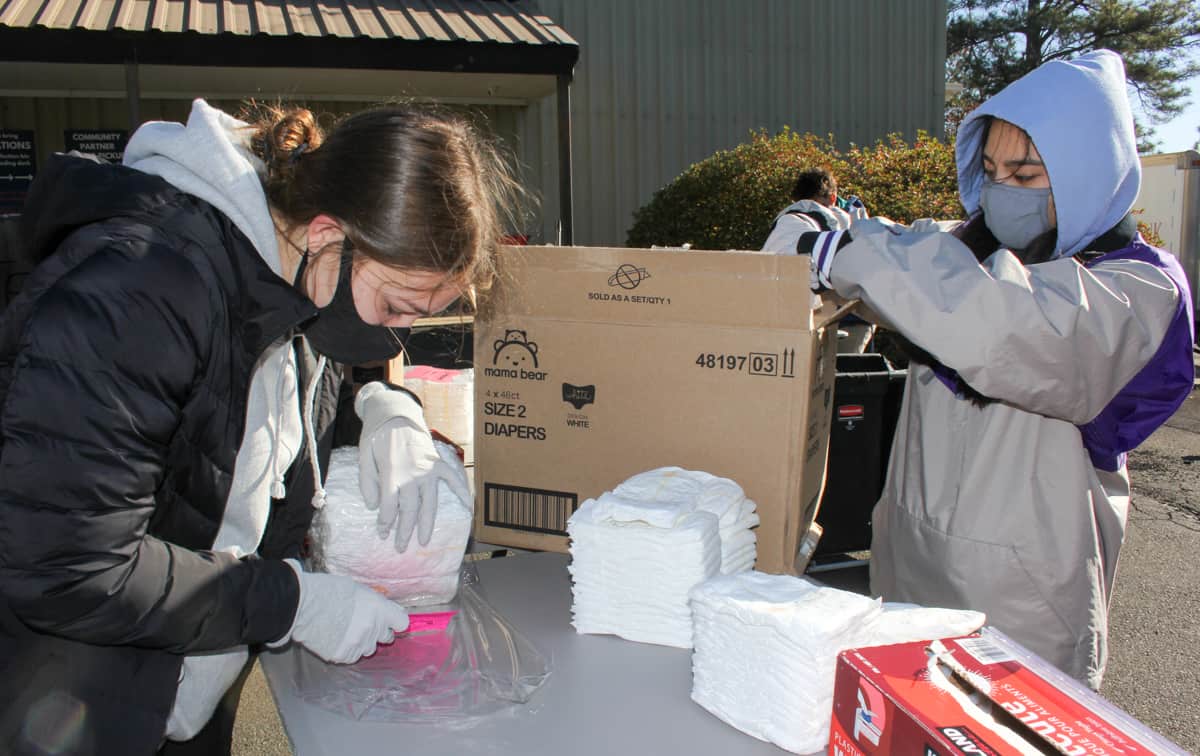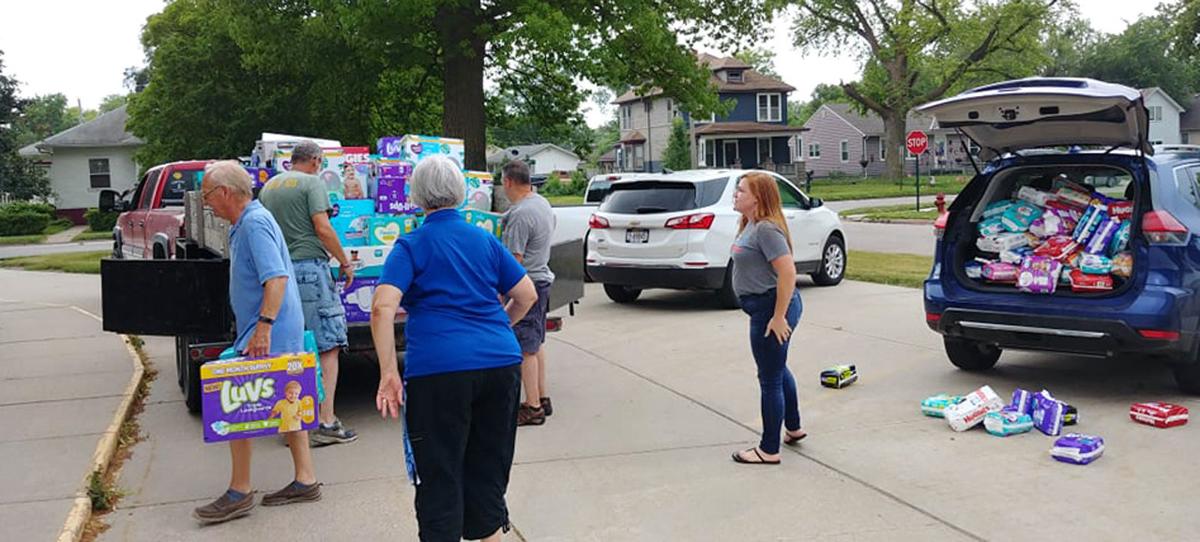
The economic devastation of coronavirus has hit some older adults particularly hard, driving up demand for diapers and other sanctuary products in social service agencies across the state.
By Liora Engel-Smith
John Henry Jeter remembers a time when his agency’s adult diaper cache gathered dust on the shelf. But then the pandemic started, that’s when incontinence and hygiene products started flying off the shelves.
Tarboro Community Outreach serves some of the neediest in Edgecombe County, an area that had the highest rates of hunger in the state even before the pandemic. Jeter, who works at the center, says clients seem to need more of everything these days.
“People were coming, and when they shop, we found out how many they were shopping for. [Before], they were shopping for themselves or a father or mother,” he said, “But then it started increasing. They were shopping for eight. They were shopping for nine.”
Jeter said that food pantry staff take clients at their word, and it’s likely that more people are living with their extended families to get by.
While demand for food increased gradually and remains high, the demand for adult diapers increased right away. In early spring, as people with more means hoarded toilet paper and other necessities, clients told Jeter that diaper prices increased beyond what they could afford. Adult diapers — sometimes used for a short time after surgery, but often longer in people with bladder or bowel control issues — are expensive to begin with.
The online diaper outlet iDiaper estimates that at $1 a diaper, people can spend between $100 to $180 a month on diapers, depending on brand and how frequently diapers have to be changed.
To make matters more complicated, Medicare does not cover incontinence products. North Carolina’s Medicaid program covers adult incontinence products when prescribed by a provider, but the program’s reach is limited by strict eligibility criteria that exclude all but people with disabilities, and seniors, pregnant women and children who are low income.

While buying diapers in bulk could decrease the cost, many low-income people cannot afford to spend that entire amount all at once, said Michelle Old, executive director of Diaper Bank of North Carolina, an organization that distributes period products and adult and baby diapers across the state.
The Diaper Bank distributes supplies to social service agencies and food pantries regularly. Since the pandemic began, Old said there’s been an uptick in rural agencies seeking adult diapers and other such products. She said she has gotten calls from social service agencies in every county in North Carolina.
“We are buying more diapers than we ever have,” she said.
Strains of the new normal
Demand for adult diapers and other sanitary products increased and remained high since the pandemic began in early spring. On average, the Diaper Bank distributed more than a million diapers to social service agencies across the state and 2 million menstrual products. As unemployment and economic instability from the coronavirus pandemic rippled across the state, Old said demand swelled by 800 percent for menstrual products and 2,000 percent for adult incontinence supplies, including bed covers, diapers and pads.
The vast majority of breadwinners in families that get the products the diaper bank distributes have held down two or even three jobs to stay afloat, Old said. But the coronavirus control measures meant that service industry employees such as food servers, bartenders and hairdressers lost their sources of income for a few months, some for even longer.
Even as these jobs returned, people’s finances have not yet recovered, said Jessica Slider Whichard, director of communications at the Food Bank of Central and Eastern North Carolina, an organization that distributes diapers and food to 900 social service agencies in 34 counties.
“It takes a really long time to recover,” Slider Whichard said. “So even if folks are back in the workforce, they have depleted their savings or made choices about what to pay and what not to pay.”
Rural hurdles
The challenges of purchasing adult diapers are magnified in rural areas, where there are fewer products and stores to choose from, Old said. While shopping for supplies online can be cheaper, some rural residents lack internet service or even a reliable phone connection at home, making it difficult to access these services.
“They often don’t have money to buy them online,” she said. “So lots of times they’re going to the little convenience food [store] that’s near them and [diapers] are marked up.”
The safety net is also sparser in rural areas, with fewer social service agencies, which means clients may struggle to reach a food pantry or another organization that may offer adult diapers for free. Transportation to these agencies may also be an issue, Old said.

Slider Whichard, from the food bank, said there has been an uptick in demand for diapers and similar products across the board. The overall demand for products, she said, increased by 38 percent.
“In times of crisis and disaster, those products are incredibly expensive,” she said. “They’re necessities, but they’re also really pricey. And when people are taking a look at what they can afford, the choices they’re having to make [is] between gas money, food or rent.”
Even with calls from agencies all over the state, Old, from the diaper bank, said the true need is likely much higher. Not every adult who can’t afford diapers feels comfortable enough to reach out for help, she said. With hurdles such as transportation, even those who are comfortable may not have the means to get the help they need.
“We’re missing a lot of families,” Old said.
If nothing else, word of mouth has helped the Tarboro Community Outreach, the Edgecombe County agency that gives out food and adult diapers, reach new populations across the county, said Jetter.
At least some of the demand for adult diapers has always been there, he said, but clients didn’t know they could get diapers at the Tarboro organization.
“A couple of people asked about it,” he said. “ … and they would get [the diapers] and they would try to get them out discreetly, and then somebody saw us doing that, and that’s when it took off.”
December 22, 2020 at 04:47PM
https://ift.tt/3hgMy8b
Rise in demand for adult diapers in rural NC - North Carolina Health News
https://ift.tt/2Comt7j
Diapers



No comments:
Post a Comment